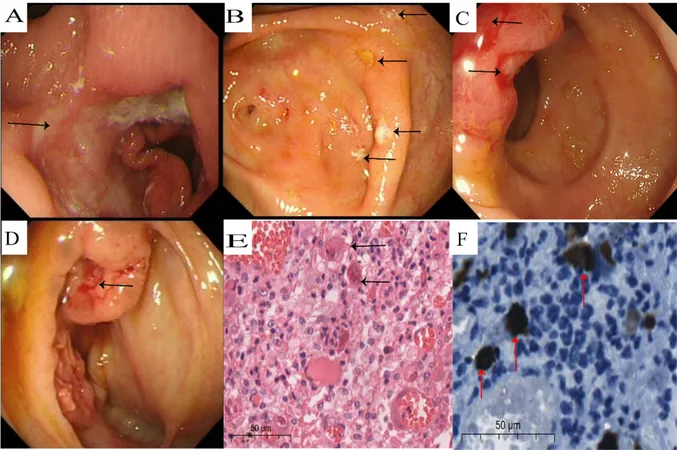
Breakthrough Test for Hepatitis B: A Game-Changer in Protecting Pregnant Women and Their Babies!
2025-03-26
Author: Li
Introduction
A groundbreaking study published in *The Lancet Gastroenterology & Hepatology* reveals that a newly developed rapid diagnostic test for hepatitis B core-related antigen (HBcrAg) shows exceptional promise for the timely detection of hepatitis B virus (HBV) DNA concentrations in pregnant women. This test could provide a vital alternative for identifying individuals at a high risk of transmitting HBV, enabling crucial antiviral prophylaxis during pregnancy.
Global Health Threat of Hepatitis B
Hepatitis B poses a silent yet severe threat to global health, with over 254 million people currently living with the virus and more than 1.1 million deaths attributed to hepatitis B-related complications each year. The disease can lead to severe liver damage, cirrhosis, and even liver cancer. Alarmingly, in resource-limited regions, especially sub-Saharan Africa and the Asia-Pacific, chronic HBV infections affect about 4% to 8% of the adult population. With mother-to-child transmission being one of the most common routes of HBV transmission worldwide, this target group is particularly vulnerable and in dire need of effective screening methods.
Current Limitations of HBV Testing
Despite the existence of vaccines since 1981 and antiviral therapies, there has yet to be a definitive cure for hepatitis B. Current testing methods for assessing transmission risk, including those that measure viral load, are often expensive and require specialized laboratory facilities—significantly limiting their availability in areas that need them most.
The Study and Its Findings
In this innovative study, researchers validated the HBcrAg-RDT using stored plasma from HBsAg-positive pregnant women across cohort studies in Cambodia and Cameroon. They also utilized finger-prick capillary blood samples from postpartum mothers in rural Burkina Faso. The aim was to assess the sensitivity and specificity of the HBcrAg-RDT in diagnosing high HBV DNA concentrations (≥ 200,000 IU/mL), using real-time polymerase chain reaction (rtPCR) as the reference standard.
Impressive Performance Metrics
The analysis involved 1,964 plasma samples, revealing that the HBcrAg-RDT displayed impressive sensitivity and specificity rates of 93.1% and 94.3%, respectively. When comparing performance, the HBcrAg-RDT outperformed conventional rapid test methods, indicating its potential to be a more reliable option in clinical settings. One of the most striking findings was the significant reduction in turnaround time for results—while traditional HBV DNA tests in Burkina Faso took an average of 46 days, the new rapid test provided immediate results.
Expert Commentary
Lead author Yusuke Shimakawa from the Institut Pasteur praised the test's effectiveness: "Our findings demonstrate that this rapid diagnostic test is not only capable of identifying women with high viral load but also offers overwhelming benefits in speed and ease of use compared to traditional PCR testing methods. This advancement allows for on-the-spot identification of pregnant women who could greatly benefit from preventive antiviral treatments."
Implications for Public Health
As the medical community continues to seek solutions to combat hepatitis B, the introduction of the HBcrAg-RDT could revolutionize the standard of care provided to pregnant women and significantly decrease the risk of mother-to-child transmission. The implications of this research stretch beyond individual lives, potentially transforming public health approaches in endemic regions and saving thousands of lives through timely interventions.



 Brasil (PT)
Brasil (PT)
 Canada (EN)
Canada (EN)
 Chile (ES)
Chile (ES)
 Česko (CS)
Česko (CS)
 대한민국 (KO)
대한민국 (KO)
 España (ES)
España (ES)
 France (FR)
France (FR)
 Hong Kong (EN)
Hong Kong (EN)
 Italia (IT)
Italia (IT)
 日本 (JA)
日本 (JA)
 Magyarország (HU)
Magyarország (HU)
 Norge (NO)
Norge (NO)
 Polska (PL)
Polska (PL)
 Schweiz (DE)
Schweiz (DE)
 Singapore (EN)
Singapore (EN)
 Sverige (SV)
Sverige (SV)
 Suomi (FI)
Suomi (FI)
 Türkiye (TR)
Türkiye (TR)
 الإمارات العربية المتحدة (AR)
الإمارات العربية المتحدة (AR)